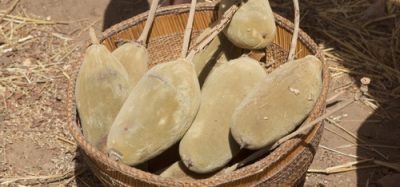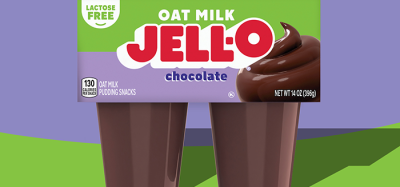Cutting down on Brazilian deforestation
- Like
- Digg
- Del
- Tumblr
- VKontakte
- Buffer
- Love This
- Odnoklassniki
- Meneame
- Blogger
- Amazon
- Yahoo Mail
- Gmail
- AOL
- Newsvine
- HackerNews
- Evernote
- MySpace
- Mail.ru
- Viadeo
- Line
- Comments
- Yummly
- SMS
- Viber
- Telegram
- Subscribe
- Skype
- Facebook Messenger
- Kakao
- LiveJournal
- Yammer
- Edgar
- Fintel
- Mix
- Instapaper
- Copy Link
Posted: 30 November 2022 | Grace Galler | No comments yet
What is being done in Brazil to push sustainable production? Find out what New Food’s Grace Galler learnt at the AgriSustainability Talks event at the Brazilian Embassy…
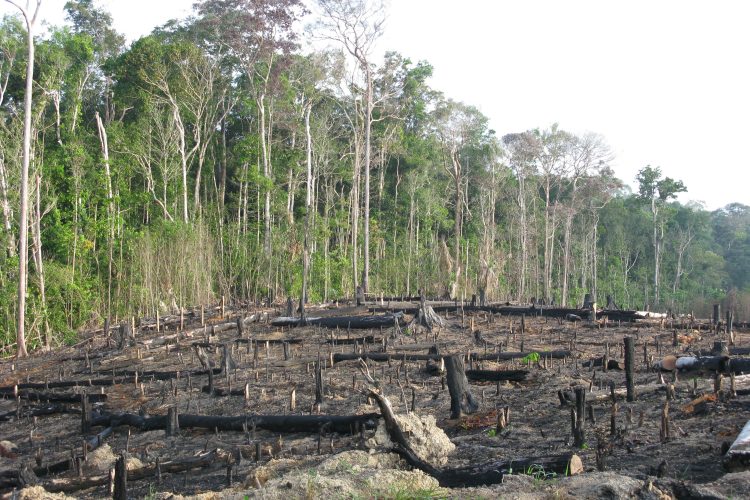

Brazil is a country in South America known for its football, World Heritage Sites and its food industry. However, in recent years, it’s also become known for significant deforestation of the Amazon Rainforest.
What is being done to cut down on deforestation and promote sustainable agriculture? Well according to speakers at a recent AgriSustainability Talks event, there have been many changes in recent years in Brazil.
On 22 November 2022, the Brazilian Embassy in London hosted an event titled “Towards Sustainable Food Security: cooperation and supply chain resistance”. Aiming to explore sustainable agricultural adaptations within the food industry, two panels discussed Brazil’s significance in the global food market and, importantly, noted what the country is doing to tackle deforestation.
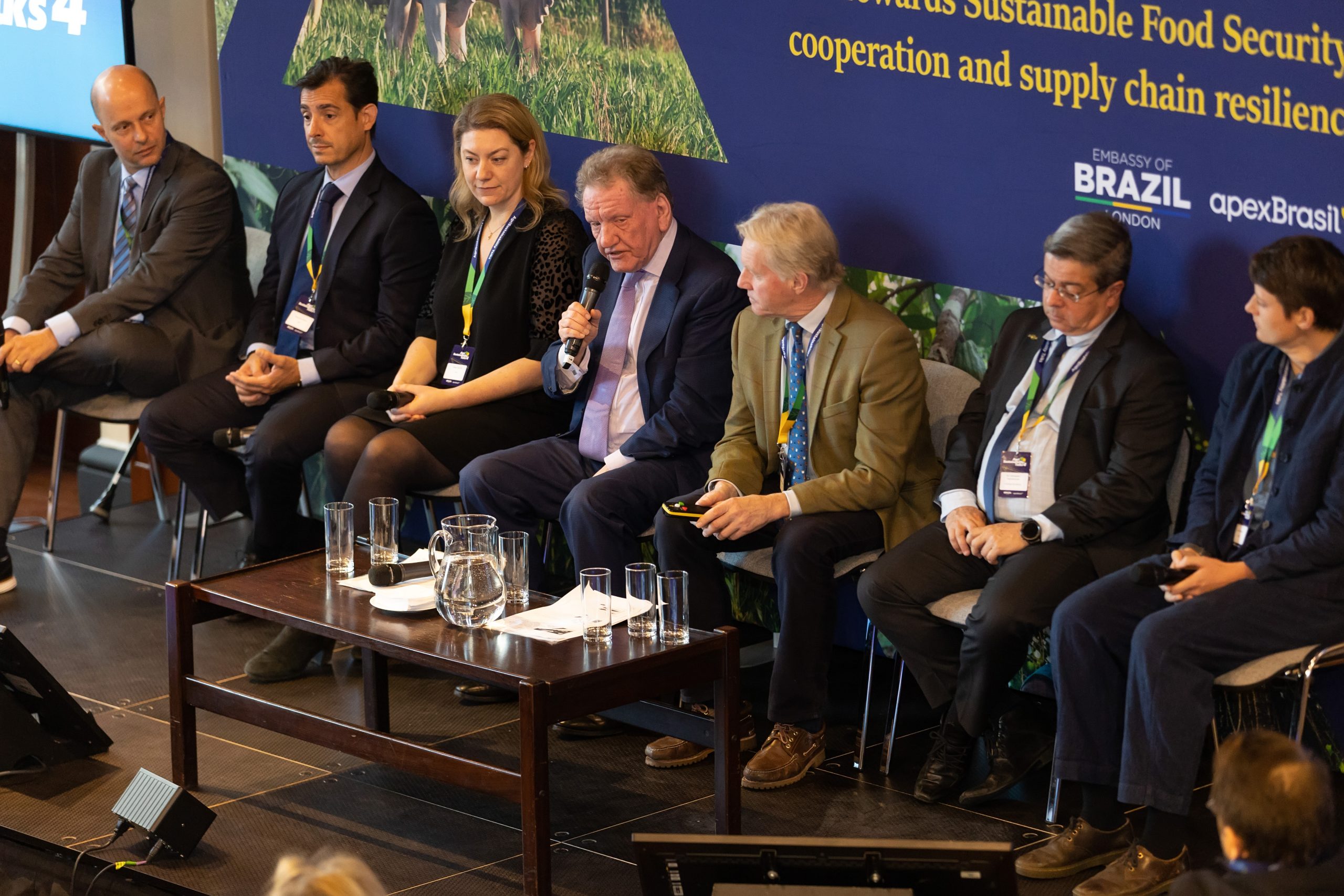

The first panel at the AgriSustainability Talks event included Rodrigo Lima, Mauricio Bauer, Anna Turrell, Ian Wright, James McCulloch, Alexandra Nepomuceno and Leila Denniston (left to right). Photo credit: AgriSustainability Talks
Land use in Brazil
According to Britannica, Brazil is the fifth largest country on Earth and accounts for one-third of Latin America’s population.
However, even with a vast population, between 2001 and 2021 Brazil lost 62.8Mha of tree cover (which is equivalent to a 12 percent decrease in tree cover since 2000). According to Global Forest Watch, this scale of deforestation resulted in 33.6Gt of CO₂e emissions impacting the planet.
Study reveals scale of illegal soy and beef exports from Brazil to EU
Speaking at the event, Alexandre Nepomuceno, a researcher for the Brazilian Agriculture Research Cooperation, explained that Brazil uses 7.6 percent of its land to produce food, with Brazilian agriculture contributing 1.9 percent of the world’s emissions.
But, according to the Council on Foreign Relations, deforestation in the Amazon Rainforest is threatening to “accelerate past a point of no return”, even though there are preventative measures in place to limit large scale deforestation in Brazil.
Legal vs illegal deforestation
In Brazil, some deforestation is permitted under the Forest Code. This Code was first introduced in 1934, with changes being made to it in 1965 and 2012. It is a law that requires landowners in the Amazon to maintain 35 to 80 percent of their property under native vegetation, according to The Nature Conservancy.
Consequently, this law means that rural farmers of all types can buy land in the Amazon but legally they are only allowed to farm on 20 percent of it, thus limiting their total agricultural output.
However, even with the Forest Code in place, there are reportedly ongoing issues when it comes to land preservation, with Nepomuceno citing “land grabbing, illegal loggers, illegal miners” as specific issues.
What’s more, the Brazilian National Institute for Space Research (BNISR) claimed that more than 3,980 square kilometers of the Amazon were deforested in the first six months of 2022. Making matters worse, the BNISR has reported that this is the highest figure in at least six years suggesting that deforestation is a persistent, worsening problem.
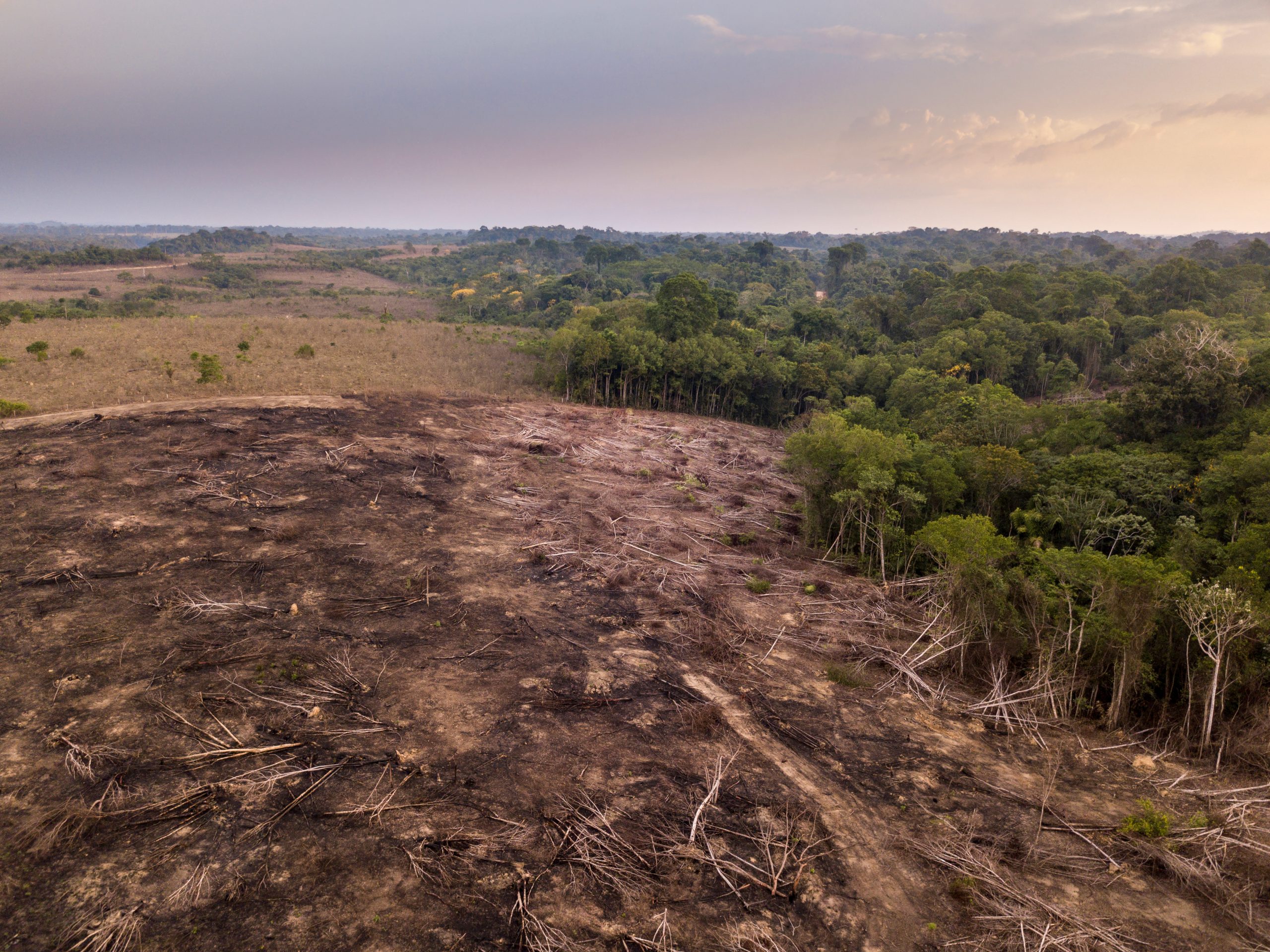

According to the BNISR more than 3,980 square kilometers of the Amazon were cleared in the first six months of 2022
At the Embassy, Rodrigo Lima, Director of Agroicone, revealed that Brazil’s goal is “zero illegal deforestation by 2022”. However, with the deforestation of the Amazon reaching a record high this year, it appears there is still much to be done in the way of obtaining farmland sustainably.
Getting deforestation back on track
At the event, Lima alluded to certain steps that Brazil’s recently outvoted President, Jair Bolsonaro, had taken to address deforestation, including initially committing to end illegal deforestation by 2030 and achieve carbon neutrality by 2050 during US President Joe Biden’s Leaders Summit on Climate in 2021.
What’s more, during the United Nations’ (UN) COP26 in Glasgow 2021, Bolsonaro adjusted his pledge to end deforestation by two years to 2028, as well as committing to supporting global methane reduction.
Additionally, highlighting the benefits of agricultural farming in Brazil in his COP26 speech, Bolsonaro claimed that the country’s “low-carbon agriculture has already restored nearly 28 million hectares of degraded pastures”. Bolsonaro even stated that, looking to the future, the country “will increase this number to 58 million by 2030”.
In order to prevent illegal deforestation, the Brazilian Institute of Environment and Renewable Natural Resources (IBAMA) has established three main administrative sanctions that seek to deter people from carrying out unlawful deforestation.
The sanctions include the application of fines, the imposition of embargoes on rural properties, and the confiscation of the means used for illegal deforestation or the produce that resulted from it.
Thus, with sanctions in place to deter illegal deforestation, as well as certain amounts of land permitted to be used for farming, Bolsonaro’s commitment during his presidency to reduce Brazil’s impact on the planet was clear, however it could ensue adjustments for the food industry.
How will the food industry be affected?
At the event, it was overt that farming sustainably was paramount to the speakers, with Mauricio Bauer, Sustainability Director at JBS emphasising that “we need to create food systems that are more professional”.
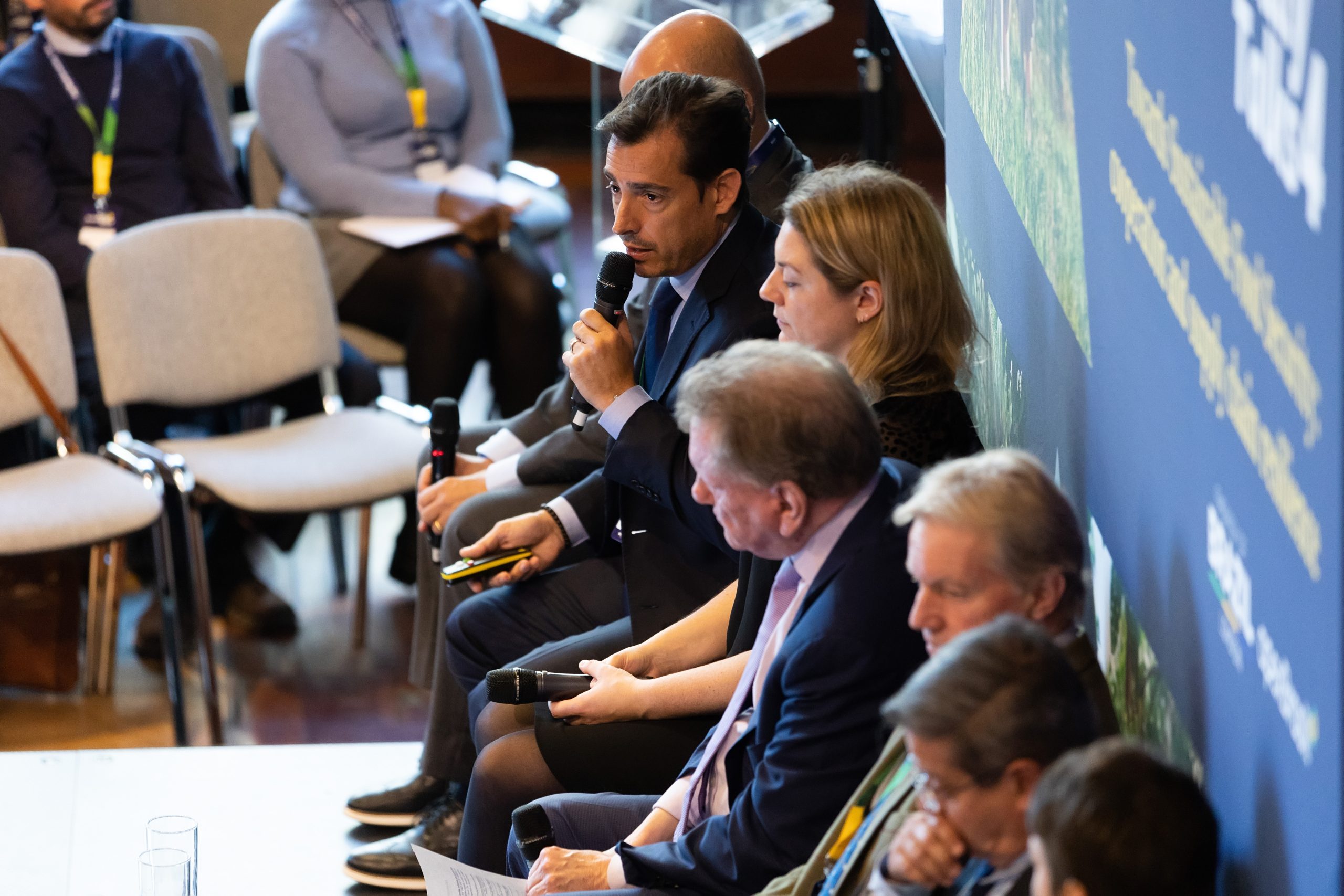

Mauricio Bauer, Sustainability Director at JBS suggested “we need food systems that are more professional”. Photo credit: AgriSustainability Talks
However, farming in a way that is holistically sustainable is something that multiple speakers at the event said could only be achieved if the food industry works collaboratively.
Brazil as a global exporter
With Brazil’s population on the rise, there are more mouths to feed than ever, but Ricardo Santin, President of the Brazilian Animal Protein Association (ABPA), noted that a large quantity of Brazilian meat is imported to other countries. In fact, Santin claimed “in the last 20 years Brazil has transported more than 1.5 million tonnes of chicken”.
“More than 2.7 million pounds of chicken meat, mostly breast, is shipped to the EU. This is the equivalent of 288 containers,” said Santin.
Predicting the future, Bauer forecasted that “there will be an increase in animal protein consumption”. However, he was keen to explain that JBS is “investing in the decarbonisation of the cattle supply chain”, making it so that the “forest is worth more standing than down”.
According to Statista, Brazil’s main export partner for beef and veal in 2021 was China, with around $3.9 billion worth of the product exported that year. However, Brazil also a significant player when it comes to European Union (EU) exports, as shipments of beef and veal from Brazil to the EU reportedly attained a value of about $540 million in 2021 alone.
With so much meat being exported globally, Satin stated that exports are a “win-win partnership” for the Brazilian meat industry and economically Santin may be correct since Brazilian exports of meat and edible offal reportedly generated $18.23 billion in 2021.
But it isn’t all about money. Speakers at the event repeatedly highlighted that there are widespread concerns when it comes to meat exports and its link to deforestation and emissions.
Anna Turrell, Sustainability Director at Tesco said that “sustainability is now key for consumers” when purchasing food. She emphasised that sustainability surrounding deforestation is an “inherently complex issue” that “will require systematic changes” and total industry collaboration.
Admitting partial but not total defeat, Turrell stated: “We cannot solve deforestation but we can have a damn good go at it”, suggesting that there are still changes that can be made to ensure sustainable farming is a priority.
What’s next on Brazil’s agenda?
Looking to the future at the talk, the speakers all agreed that collaborative projects play a significant role in “combing forest conservation with protection methods from economic and social perspectives”.
Labelling the Amazon Rainforest as a “green ocean”, Paulo Moutinho, Senior Researcher at the Amazon Environmental Research Institute, claimed that “if we burn [the Amazon] we are in trouble in terms of climate change” thus suggesting that it is pivotal to cut down high levels deforestation that have occurred in recent years.
According to Moutinho, “there is great effort from people to make the supply chain free of deforestation” although in order to benefit ” Brazilians, the food industry, investors and the planet” further decisions need to be made to save the “green ocean”.
The overall consensus of the two panels was that Brazil has come a long way in terms of sustainable farming but there is still more to be done.
However, with the recently elected Luiz Inácio Lula da Silva taking the reigns as Brazil’s President on 1 January 2023, he will have to tackle the sustainable promises made by Bolsonaro following his inauguration.
With Brazil’s pledge to end deforestation by 2028 and large scale food companies such as JBS committing to make changes by cutting down on deforestation, the country could be sowing the seed for a greener, more fruitful agricultural industry.
Related topics
Environment, Food Security, Regulation & Legislation, retail, Supply chain, Sustainability, Trade & Economy, World Food
Related organisations
Agroicone, Amazon Environmental Research Institute, Brazilian Agriculture Research Cooperation, Brazilian Institute of Environment and Renewable Natural Resources (IBAMA), Brazilian National Institute for Space Research (BNISR), Council on Foreign Relations, Global Forest Watch, JBS, Tesco






